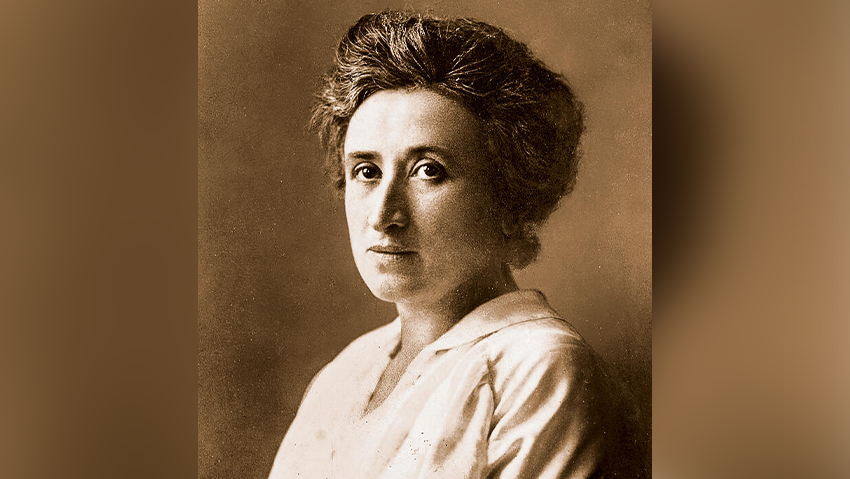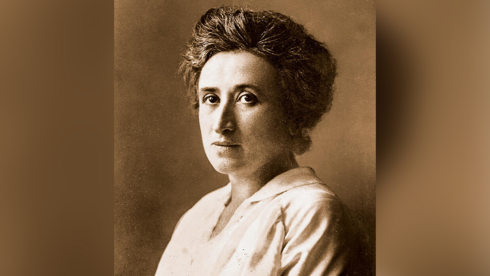On the late evening of January 15, 1919, revolutionary and Marxist thinker Rosa Luxemburg was shot at close range and thrown into Berlin’s Landwehr Canal. Her body was discovered on May 31, taken under a gag order to the city hospital’s morgue, and was not buried until June 13. Luxemburg, 48, left behind a tumultuous life that shaped political thought at the turn of the 20th century.
Born March 5, 1871, Luxemburg was the fifth-generation descendant of a middle-class Polish-Jewish family in Zamość, then part of the Russian Empire. Like other Polish Jews under imperial rule, she faced dual ethnic and religious oppression, which influenced her early awareness of minority status. Known for her intelligence and talent for languages, she studied at a girls’ gymnasium in Warsaw, joined the dissolving Polish proletarian party at age 15, and later earned a doctorate in “Industrial Development of Poland” from the University of Zurich. In 1893 she co-founded the Social Democratic Party of the Kingdom of Poland and Lithuania. She moved to Berlin in 1898 and joined the Social Democratic Party of Germany, which became her political home for most of her life, and was active in the Socialist International.
1 View gallery


Rosa Luxemburg
(Photo: Getty Images)
Luxemburg became a prominent Marxist theorist and revolutionary, noted for her steadfast commitment to her beliefs. In 1899, she published Social Reform or Revolution?, challenging SPD figure Eduard Bernstein, who favored gradual reform over revolutionary action. Luxemburg argued that reforms alone would strengthen capitalism and leave political power in bourgeois hands, insisting that revolution was necessary for lasting change. “The difference is not in what, but in how,” she wrote, stressing that the movement alone was insufficient without the ultimate goal of proletarian political power.
Her writings linked cultural and political phenomena in a holistic intellectual framework, connecting revolutionary action to democracy. “The chances of democracy surviving do not increase when the working class abandons its struggle for freedom. On the contrary… whoever strengthens democracy also strengthens the socialist movement, and with the denial of the socialist struggle, the workers’ movement and democracy are lost,” she wrote. Luxemburg also criticized imperialism, colonialism, militarism, and the nation-state system, which she saw as supporting global capitalism.
In 1904, Luxemburg began a frequent and often contentious dialogue with Vladimir Lenin, lasting until her death. They debated the national question and the role of the proletariat in revolution. Luxemburg insisted that revolution must come from the bottom up, from the proletariat itself, rather than from a party center of middle-class intellectuals making decisions on its behalf. “The proletariat will not learn discipline through the capitalist state, by transferring the baton directly from the bourgeoisie to the Social-Democratic conference, but through challenging imposed discipline and uprooting it,” she wrote in her essay Organizational Questions of the Russian Social Democracy, responding to Lenin.
In the early 1910s, the SPD became more centrist and gained parliamentary power. By 1911, a center-right faction emerged, led by a revisionist. Luxemburg’s opposition to militarism and public criticism of Germany’s involvement in World War I led to repeated imprisonments and her eventual separation from the party. Alongside Karl Liebknecht, she founded the Spartacus League, which later evolved into the Communist Party of Germany. In her 1918 essay What Does the Spartacus League Want?, she wrote: “With the end of the World War, the rule of the bourgeois classes has lost its right to exist. It can no longer rescue society from the economic devastation left by imperialist orgies.” The essay ends with a call to action: “Awake, proletarians! To battle! We must conquer the world and fight it. In this class war, the last in human history, and for the highest goals of humanity, our message to the enemy is: a thumb to the eye and a knee to the chest!” The German Revolution ultimately failed, and Luxemburg and Liebknecht were murdered by anti-revolutionary militias.
Dana Mills’ Rosa Luxemburg is an intellectual biography that situates Luxemburg’s writings and speeches within her life experiences and historical context. The book examines her romantic relationships, often disappointing, and her bold friendships with women, many connected to the Marxist milieu. Luxemburg was not an outspoken feminist but supported women’s right to choose as part of her pursuit of universal equality. Mills explores her personal writings, including letters from prison, revealing a complex, contradictory personality. Her prison letters show a rich inner world, enduring concern with humanity, and reflection on humans’ relationship with the non-human world.
Originally written in English, Mills notes in a special afterword for the Hebrew edition that she began translating the book in December 2023, much of it during the mass killings in Gaza. She said she needed to write a summative text considering the present moment, despite the difficulty. “As the ruins of Gaza, an hour away from me while I write these words, echo the futility of choosing death and war, as Israeli hostages fade from collective memory for the sake of uncontrollable vengeance—Rosa Luxemburg, though absent from the world I write in, remains a dialogue partner nurturing an alternative political imagination, calling us to live with attentiveness to the world and resist the militaristic ethos shaping our lives,” Mills wrote. The book includes an illuminating foreword by Anat Matar.
Rosa Luxemburg, Dana Mills, Gamma Publishing, 261 pages.

